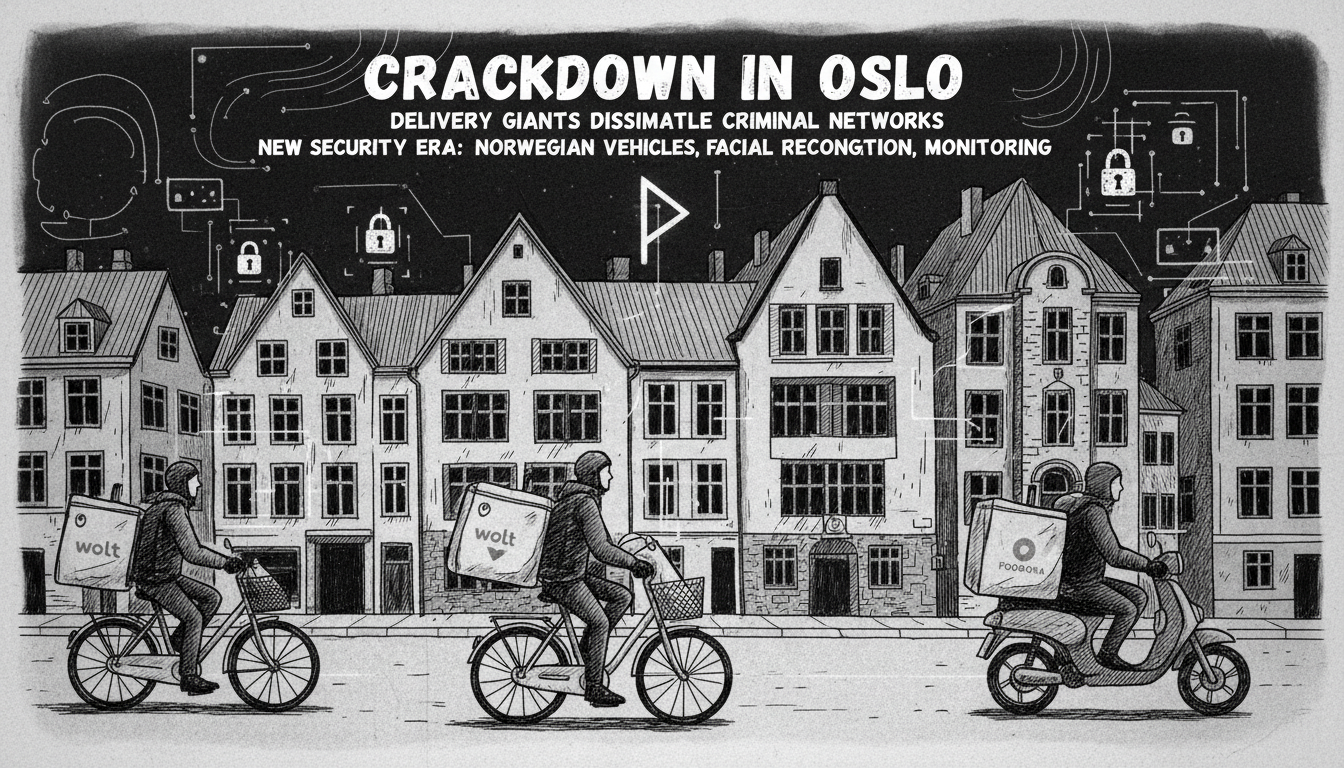Food delivery companies Wolt and Foodora are implementing sweeping security measures after discovering organized criminal networks had infiltrated their platforms in Oslo. Both companies describe this as their most serious operational crisis to date, prompting urgent action to remove criminal actors from their delivery systems.
Elisabeth Stenersen, Wolt's top executive in Norway, expressed deep responsibility for the situation. She confirmed the company has dedicated most of its resources in recent months to addressing the security breach. Foodora's country manager Prashant Søegaard echoed this commitment, noting that combating criminal elements has consumed the majority of his time.
The crisis began when police investigations revealed connections between delivery drivers and organized crime groups. Authorities identified widespread account sharing and what they termed 'backer-import' of drivers as key methods criminals used to infiltrate the platforms. A sudden surge in Romanian-registered vehicles operating around the clock first raised suspicions among company officials.
Police investigator Lasse Johnsen stated unequivocally that organized criminal networks were operating through the delivery systems. Both companies responded by establishing dedicated task forces working intensively to address the security gaps.
Norwegian vehicle requirements have become the first line of defense. Wolt has closed over 100 delivery accounts for violating the new rule requiring Norwegian-registered cars. Foodora has suspended agreements with 168 drivers who failed to comply with the vehicle regulations. Both companies now conduct regular physical inspections in the Oslo area to verify compliance.
Identity verification measures have been significantly strengthened. Wolt has reviewed all 3,500 of its delivery drivers to ensure proper documentation and permissions. The company has implemented facial recognition technology in its driver app, requiring regular selfies to access the platform. Foodora has established daily work limits of 12 hours maximum to reduce incentives for account sharing.
Advanced monitoring systems now track multiple risk indicators. IP address tracking alerts companies when drivers accept orders from foreign locations. Foodora has created a dedicated tip line where customers, restaurants and other drivers can report suspicious activity. Weekly security meetings analyze patterns including frequent address changes, vehicle switching, and payment account irregularities.
The companies face particular challenges with self-employed contractors (ENK), who police estimate comprise over 90% of problematic cases. Both companies maintain they won't eliminate this legal employment model but instead focus on removing those who abuse it.
Tax compliance has emerged as another area needing attention. Both companies acknowledge they must take greater responsibility for VAT reporting, though they note tax authorities currently lack systems to receive frequent submissions. Foodora has implemented new accounting procedures to address tax evasion concerns.
While the number of Romanian vehicles has dropped dramatically in recent months, company executives acknowledge this alone won't solve the problem. They're now taking a multi-pronged approach combining vehicle requirements, identity verification, activity monitoring and tax compliance.
The situation highlights broader challenges in Norway's gig economy, where flexible work arrangements can create vulnerabilities. Similar issues have emerged in other Nordic countries where food delivery services have expanded rapidly. The companies' response could set precedents for how platform businesses address security concerns while maintaining operational flexibility.
Police express satisfaction with the companies' cooperation but note ongoing challenges. The effectiveness of these measures will become clearer in coming months as companies continue their security overhaul and police monitor criminal adaptation attempts.

